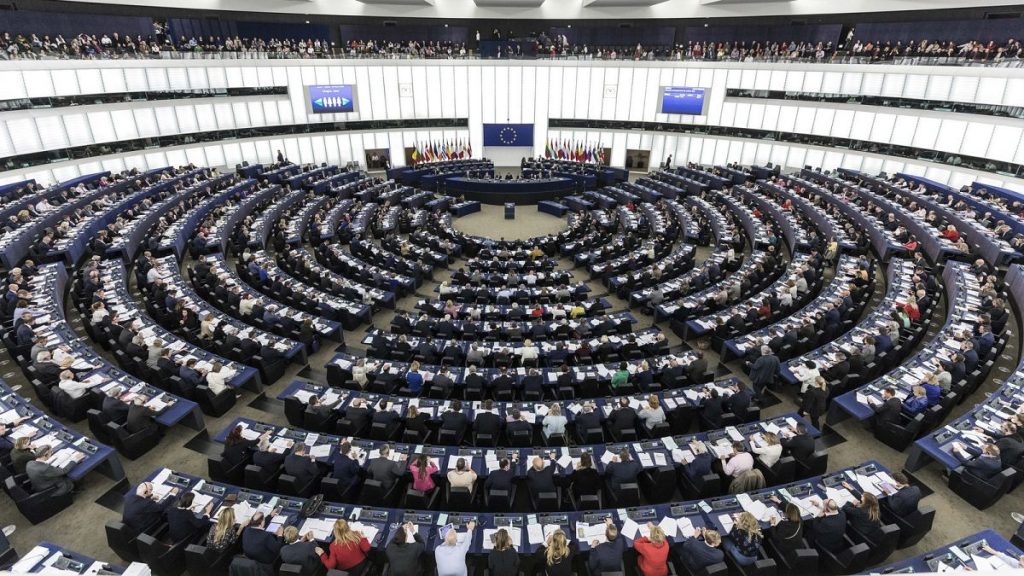A recent Ipsos poll conducted for Euronews has revealed that non-affiliated parties could play a significant role in the upcoming European Parliament election. These parties, not aligned with any of the EU’s political groups, are projected to secure 68 out of 720 seats in the parliament. This number represents an increase from the 49 seats they currently hold. The presence of these non-affiliated parties could impact crucial votes on various EU legislation ranging from climate to migration to technology. Back-room negotiations on group membership could determine the balance between right and left in the newly-elected European Parliament.
The polling data suggests that the future non-affiliated members would be divided almost equally between the left and the right, with seven seats potentially going to centrist or non-classifiable parties. If the right-wing non-affiliated members choose to align with right-wing factions such as the European People’s Party, European Conservatives and Reformists, or Identity and Democracy, a potential right-wing coalition could secure a slim majority in the parliament. The rise of support for far-right parties across Europe is influencing the potential composition of the parliament, with radical right-wing parties expected to win in six member states including France and Italy.
Negotiations on group membership are ongoing, with parties like Hungary’s Fidesz and Italy’s Fratelli d’Italia considering their affiliations. Fidesz, led by Hungarian Prime Minister Viktor Orbán, is the largest non-affiliated party, expected to win 12 seats in June’s election. Fidesz left the centre-right European People’s Party in 2021 due to tensions over backsliding on democracy and the rule of law. The party’s policies align with the Eurosceptic ECR, raising speculation that Fidesz lawmakers may join that faction after the election. However, this move could hinder ECR’s chances of forming partnerships with the more moderate EPP group.
Another significant non-affiliated party is Germany’s Bündnis Sahra Wagenknecht, led by the former leader of the German Left party. While classified as a left-populist faction, Wagenknecht’s party has taken a hard line on migration, hoping to appeal to voters disillusioned with mainstream politics. The party is projected to finish fifth in Germany, winning seven seats in the European Parliament. Italy’s Five Star Movement, led by former Prime Minister Giuseppe Conte, is also expected to secure 16 seats. If the Five Star Movement aligns with the left-leaning Green party, their MEPs could have a substantial impact on the parliament’s dynamics.
The potential increase in non-affiliated party seats could lead to a shift in the balance of power in the European Parliament, with implications for key EU policy decisions. The right-wing tilt in the Parliament due to rising support for far-right parties could result in the formation of a right-wing coalition with the potential to take control. On the other hand, left-wing parties aligning with non-affiliated members could bolster the numbers for left-leaning factions, countering the right-wing influence. The outcome of group membership negotiations and alliances formed after the election will shape the future direction of the European Parliament and its decision-making processes.
The Euronews poll by Ipsos, based on data from 26,000 individuals in 18 countries representing 96% of the EU population, provides valuable insights into the potential composition of the European Parliament following the upcoming election. As non-affiliated parties gain prominence and influence, the significance of back-room negotiations on group membership cannot be understated. The evolving political landscape in Europe, marked by the rise of far-right parties and shifting alliances, underscores the importance of these upcoming decisions in determining the direction of EU legislation and policymaking.


